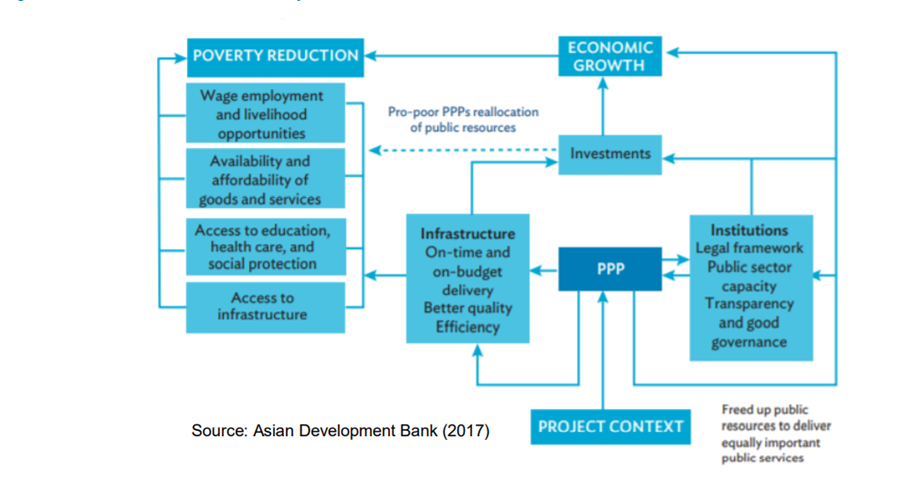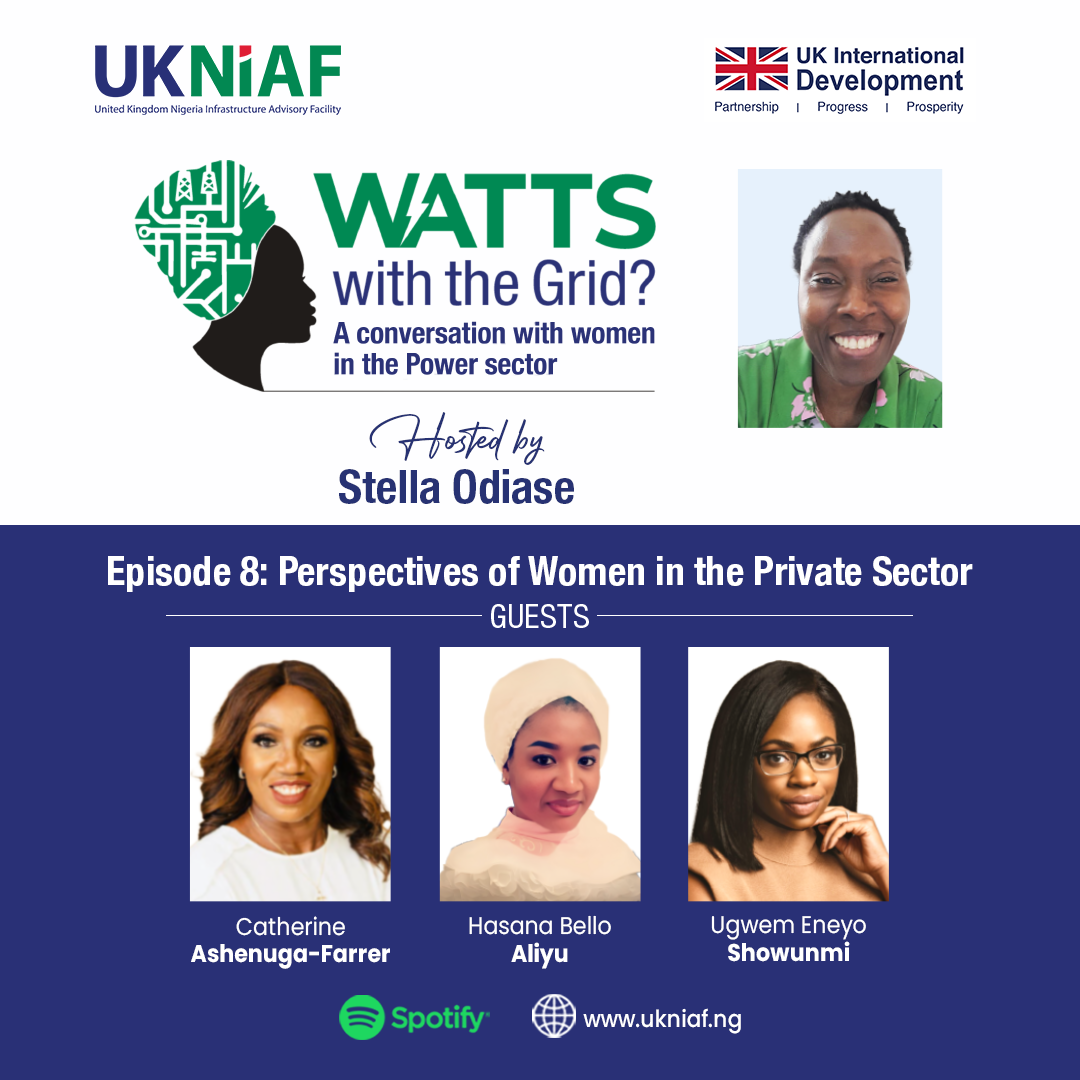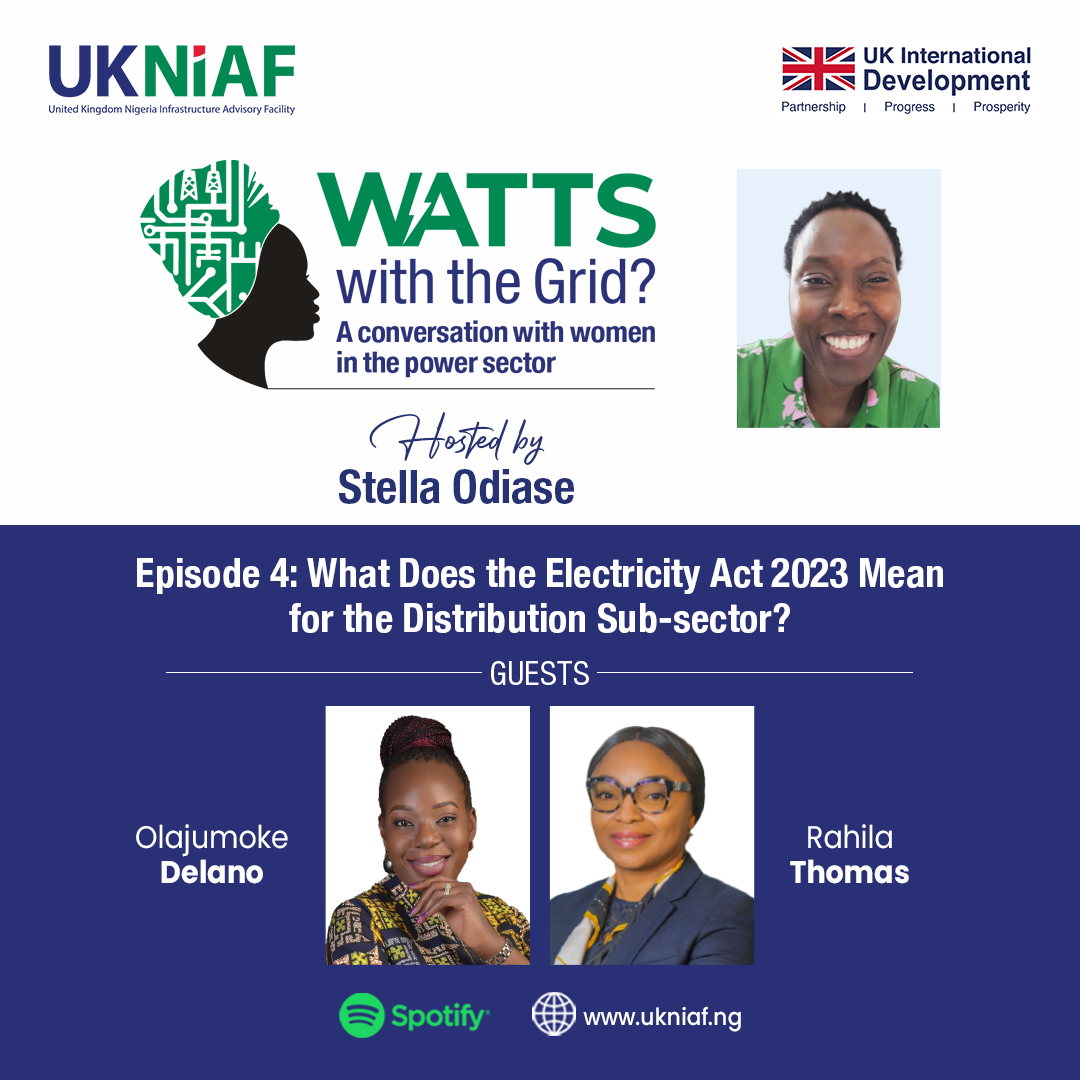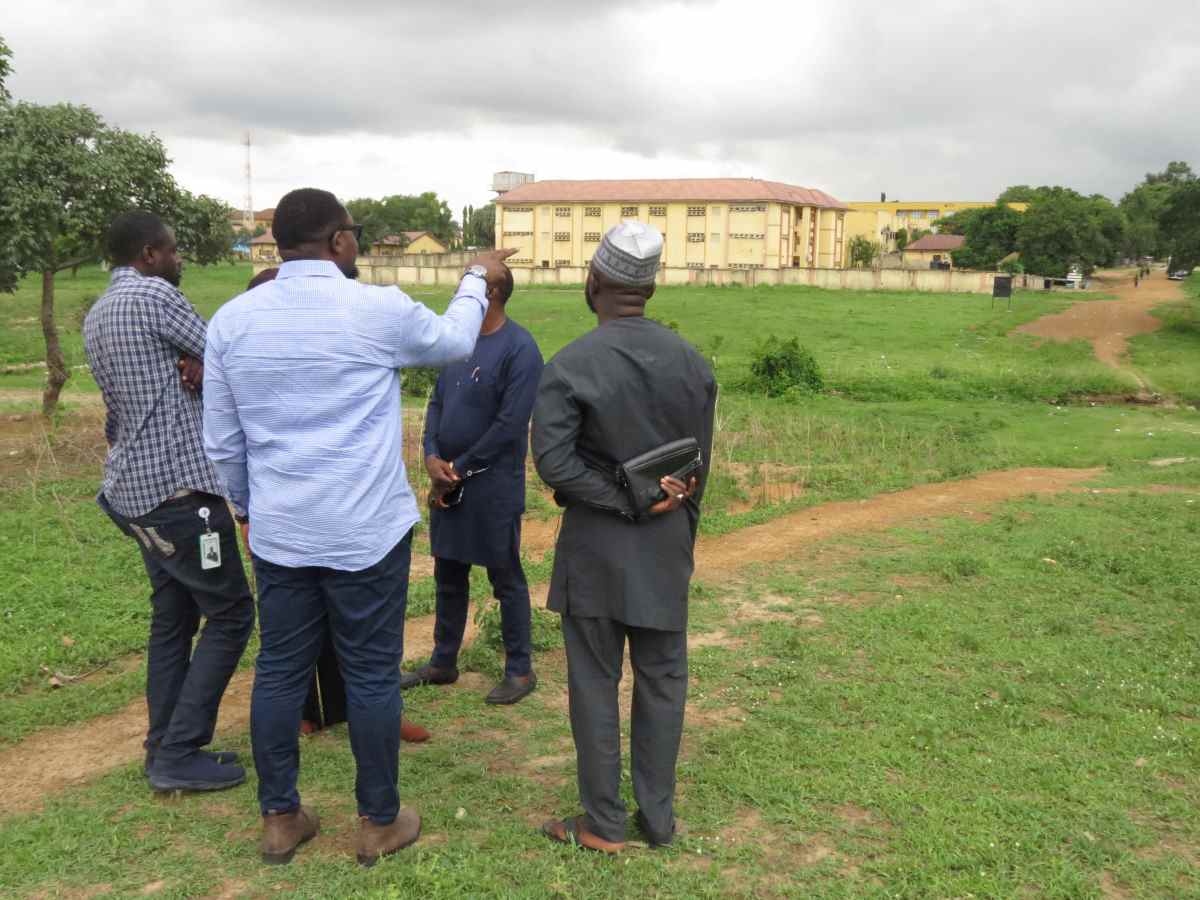At 2.6% per annum, population growth in Nigeria outstrips GDP growth. Currently, about half of Nigeria’s 200 million people live below the poverty line of $1.90 per day. To improve these figures, Nigeria needs to develop. Infrastructure is critical for human and economic development, but infrastructure quality in Nigeria is poor compared to other countries, hindering economic growth, productivity, and competitiveness. These challenges disproportionately impact the poor, and make Nigeria extremely vulnerable to climate change.
In Nigeria, inadequate infrastructure restricts the poor from accessing vital public goods and services. The causal link between infrastructure and economic growth is well-established and captured in Figure 1. By improving the quality and quantity of public infrastructure, progress and growth can be made in creating jobs, reducing poverty and improving social inclusion.
Figure 1: Link between Infrastructure PPPs, Poverty Reduction and Economic Growth

Financing this additional, inclusive infrastructure can be done through public-private partnerships. The Sustainable Development Goals (SDGs) highlight PPPs as an important component of scaling up the delivery of public goods and services. Further, the Nigerian Integrated Infrastructure Masterplan (NIIMP) promotes leveraging both private and public resources to address the infrastructure deficit.
There are, however, some challenges with simply implementing PPPs:
- Firstly, the use of PPPs and private-sector infrastructure financing has grown rapidly in Nigeria over the last 20 years. However, with these lacking a pro poor focus, they have not resulted in creating long-term jobs and higher living standards that are possible with a more inclusive approach.
- The COVID-19 pandemic and its associated risks poses another challenge.
- These, together with the ongoing climate risks, raise concerns about how future PPPs should be implemented.
To overcome these challenges PPP arrangements must include clear ‘do no harm’ commitments as a minimum standard and incorporate key performance indicators for poverty alleviation, social inclusion, climate adaptation and mitigation strategies as part of the project ideation and prioritisation process. The concept of People First PPPs, which the UNECE is spearheading promotes this inclusionary process. These provide an alternative method of implementing PPPs based on “Value for People” principles without sacrificing the Value for Money (VfM) considerations that typically drive the prioritisation and implementation of PPPs. UKNIAF’s Infrastructure Finance component works to incorporate inclusionary PPPs in the selection, development, procurement, and implementation of infrastructure to serve as a mechanism for shared prosperity in Nigeria.
There are numerous examples from countries similar to Nigeria where PPPs have delivered social impacts. These include Agriculture PPP Post-earthquake Haiti; Invest in Africa; India’s Sustainable Agriculture Project (Maharashtra State); Hemodialysis Centre at NIKDU, Bangladesh, and the Pamir Private Power Project in Tajikistan.
These and other examples are included in the Learning Note on People-First PPPs, which was created to guide UKNIAF technical assistance to the Government of Nigeria in selecting, prioritising, and developing PPPs in Nigeria.














